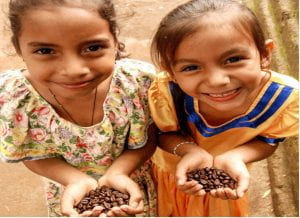by April Alvarez

A Human Rights Internship
This 2021 Spring Semester, UAB’s Institute for Human Rights had the privilege of partnering with Clínica Verde in Nicaragua to dive into the human rights issues that women in the country face, especially regarding health care. The internship, directed by Dr. Tine Reuter and Dr. Stacy Moak, has opened doors to important conversations about the importance of voicing and advocating for people who need support. Although the semester just started, those involved with the internship have already been exposed to several educated and experienced scholars that are making a mark on the country and are looking to equip and inspire others to do the same. In just one month, students have learned about the life of women and children have struggled to find economic stability, and access to basic resources. The purpose of this partnership with Clínica Verde is dive deeper into the ways that UAB (University of Alabama at Birmingham) students can serve others even during a global pandemic. Through the development of the course students will develop programs and educational presentations that aim to advocate the same values and goal displayed by the staff at Clínica Verde to reach out to more people in the clinic’s surrounding community but also to those in more rural areas.
Feed My Starving Children (FMSC)
Yolanda Paredes-Gaitan was the first speaker invited to speak to the students. She lived in Nicaragua for twelve years but is now currently living in California and working for the U.S. government. While in Nicaragua, she worked alongside Clínica Verde helping find ways to advocate for human rights issues, now she does that in partnership with the U.S. Valuable information shared through her presentation revealed that 65% of people in Nicaragua live in rural areas that are usually only accessed by walking or horses. Although the country of Nicaragua is rich in resources such as coffee, chocolate, and honey, however the country has been deemed the second poorest country, after Haiti. So why does this matter? It matters because it affects everything, including the quality of life in the country. Every community in the country has what is known as a health post. Each health post is usually the primary place for individuals to go to for basic health care needs, especially since few people have access to a nearby hospital. However, the problem is that most of the posts are rundown and in need of repairs. With the help of Clinica Verde, one post which had a structure that was falling apart, had holes in the roof, had no running water was transformed into a new and improved post that is now a green building that has natural ventilation, lighting and has access to water and the resources needed to provide the community with quality services. The goal of Clínica Verde is not to keep all the knowledge to themselves but instead to spread it with those in the country. Another thing that the clinic has been able to do is to provide posts with the knowledge necessary to run an intensity garden. The reason the clinic does this is because they are not looking to provide the women and children with short term solutions to their problems. They want to equip people with the knowledge to improve their lives long term, so they are more educated on how to live a more healthy and sustainable life.
Who visits the clinic?
People from all around the country visit the country. One lady traveled by bus and walked two hours up a hill just to get back home, but she did it because she loved the care provided by Clínica Verde. However, unlike the traditional view that when patients need care, they must go to the clinic, Clínica Verde travels to rural communities three times a week. Their mission goes beyond what the four walls of their building. They make it a priority to reach those who would otherwise not have time to visit the clinic. Another important thing to note is that the clinic also Nicaragua had no education in optometry until one donor came to the country and changed that. Now the team at Clínica Verde also has a program that helps provide people in the community with free glasses which is centered around the students but also anyone in the student’s lives that may also need glasses. This optometry program has also allowed senior citizens to have surgeries that have saved them from going blind.

